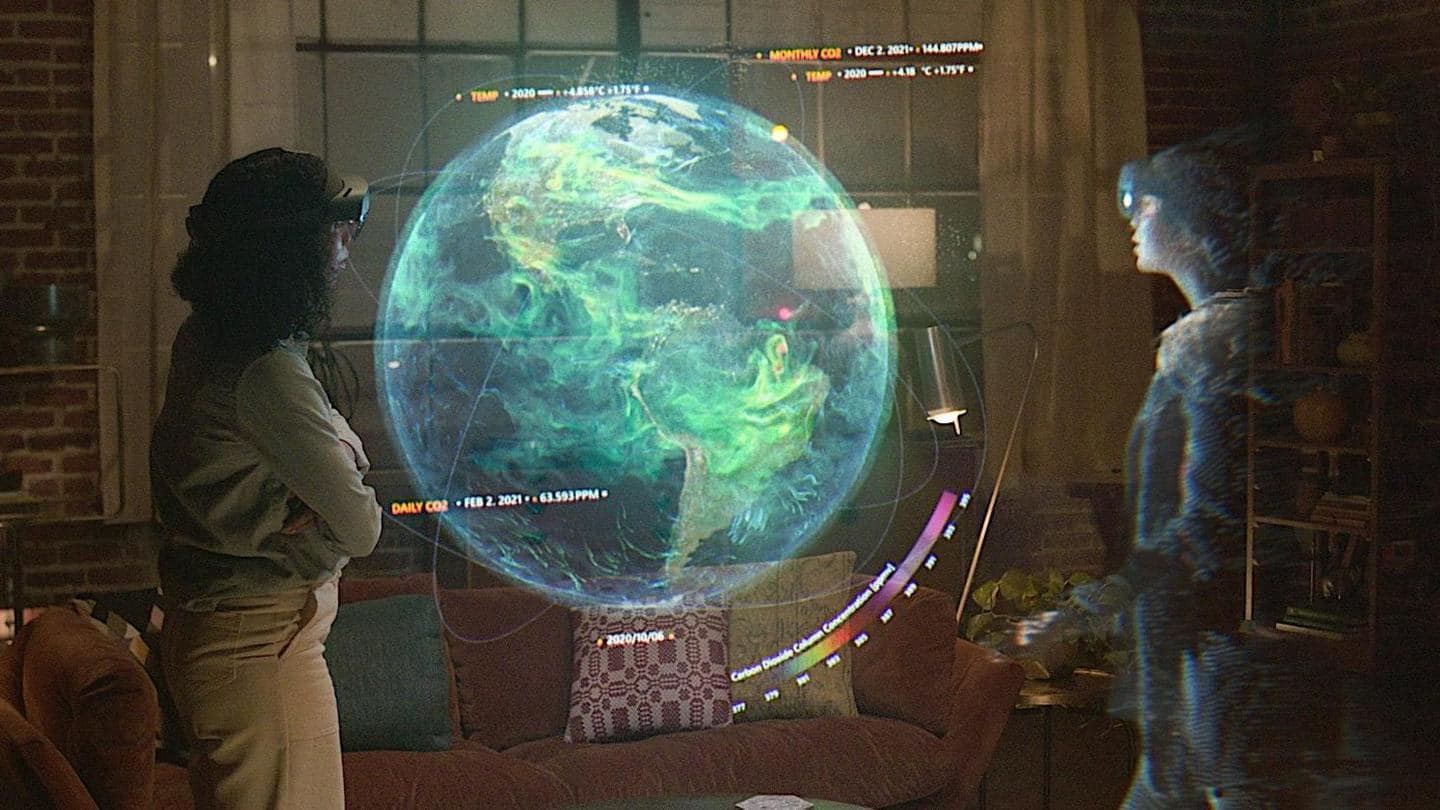
Microsoft demonstrates Mesh mixed reality platform for virtual collaboration
What's the story
During the virtual Ignite conference on Tuesday, Microsoft demonstrated the Mesh mixed reality platform, which enables remote collaboration using the HoloLens 2 headset.
Mesh is based on Microsoft's Azure cloud platform and allows people to participate in shared virtual experiences.
Although the demonstration had rudimentary cartoonish graphics, Microsoft envisions applications for Mesh ranging from collaborative engineering projects to performances with Cirque du Soleil.
Like Pokemon Go
Microsoft demonstrated interaction with cartoon avatars
During the conference that was conducted on the Mesh platform itself, the Director of Mixed Reality at Microsoft, Greg Sullivan, allowed the attendees to interact with virtual objects such as the moon, jellyfish, and a shark.
Although Microsoft calls the objects in the virtual space holograms, they are just Augmented Reality (AR) elements similar to Pokemon characters in the Pokemon Go mobile game.
Rough edges
Mesh visuals a long way off from delivering convincing immersion
Attendees at the virtual event remarked that the audio processing was accurate and one could tell if another attendee was standing up or sitting down without looking at their virtual cartoon projection.
However, Engadget observed that although the conference sought to demonstrate Mesh's capabilities, the virtual avatars of attendees had disconnected hands and limited facial expressions, leaving a lot to be desired.
Fiddly buttons
Floating virtual buttons and grab-to-resize features lack refinement
Another detail we observed from Mashable's video of the experience is that avatar creation options are also limited, to say the least.
The virtual space doesn't yet fill one's field of vision. Also, interacting with free-floating buttons and grab-to-resize don't work fluidly for a truly immersive experience.
These aspects raise questions regarding how Microsoft will enable complex engineering collaborations on Mesh.
AltSpace characters
Mesh will soon allow people without headsets to join
The AR avatars are borrowed from AltSpace, a social platform Microsoft acquired in 2017.
Sullivan told Mashable that development for HoloLens 3 was being carried out on Mesh, which was impactful in terms of efficiency.
Microsoft claims that Mesh will soon allow people to join without headsets using phones and computers. Mesh is presently supported on HoloLens, HP Reverb G2, and Oculus Quest 2.